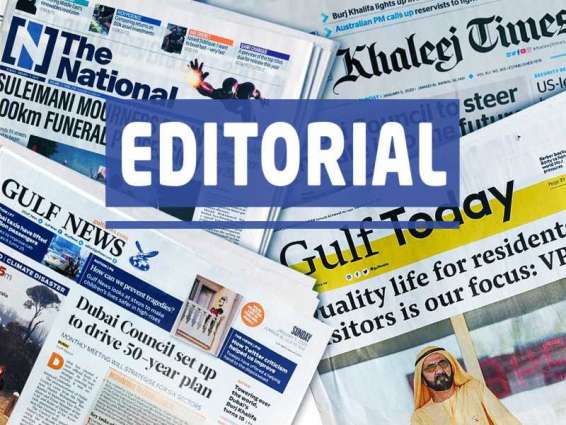ABU DHABI, (Pakistan Point News - 28th Sep, 2020) On Saturday, the Mohammed bin Rashid Space Centre, MBRSC, announced a 10-year strategy – spanning 2021-2031 – that offers a glimpse into the UAE’s ambitions in the areas of space exploration, science and technology. The MBRSC plan provides an important framework for the centre’s key objectives for the decade, broadly categorised as space missions, research and development, and sustainability.
In an editorial on Monday, The National newspaper said that "the unveiling is significant for a variety of reasons."
"First and foremost," the paper said, "it builds upon the foundation laid by the MBRSC over the past decade and a half of the government agency’s existence, coming on the heels of the UAE’s recent achievements that include sending a man into space and launching an unmanned mission to Mars."
It added, "Indeed, His Highness Sheikh Mohammed bin Rashid Al Maktoum, Vice President, Prime Minister and Ruler of Dubai, made the announcement only a day after the nation celebrated the one-year anniversary of Maj Hazza Al Mansouri’s historic visit to the International Space Station. In July, the UAE launched the Hope Probe to Mars, an unmanned vehicle expected to reach the 'Red Planet' in February 2021. And since October 2018, KhalifaSat – the first satellite designed, tested and manufactured by Emirati engineers – has been beaming images of the Earth, providing much-needed data on climate change, among other things.
"The 10-year plan also speaks to the aspirations of millions of young men and women living not only in the UAE, but the wider Arab world. For an entire generation growing up in the midst of great political, economic and ecological change and tumult in many parts of the region, there can be nothing more inspirational, purposeful and even unifying than being genuinely able to reach for the stars.
"During the golden age of space exploration, in the 1960s and 70s, the US sent 24 astronauts to the Moon. Only eleven survive to this day. Amid the revival of this most important of human pursuits, many young Arabs have role models of their own to look up to. Maj Al Mansouri and the UAE's reserve astronaut, Dr. Sultan Al Neyadi, are currently undergoing a 30-month training programme at Nasa’s Johnson Space Centre in the US city of Houston. The contribution they can make by way of knowledge transfer will be critical to the development of future astronauts from the region."
"Perhaps most importantly," the editorial noted, "the planet as a whole stands to gain from the MBRSC plan". "At a time when the world at large is struggling to address its biggest public health and economic crises in more than a century, the UAE is already building a post-COVID-19 future – and space research and exploration are integral to the country’s long-term, strategic thinking."
The paper added, "As Nasa has put it, "through addressing the challenges related to human space exploration, we expand technology, create new industries, and help to foster a peaceful connection with other nations". All of humanity faces an uncertain future – half a billion more poor people (wrought by the pandemic) and climate change (which the pandemic is a symptom of). With space research leading to the creation of new technologies and industries, surely some of the solutions to Earth's problems lie beyond its realm."
"As humans explore new frontiers, the UAE envisions establishing a city on Mars by 2117. While this may seem like a giant leap for mankind to take, let alone one country, it is the small steps being taken, one decade at a time, that will make this long-term goal achievable," the Abu Dhabi-based paper concluded.




